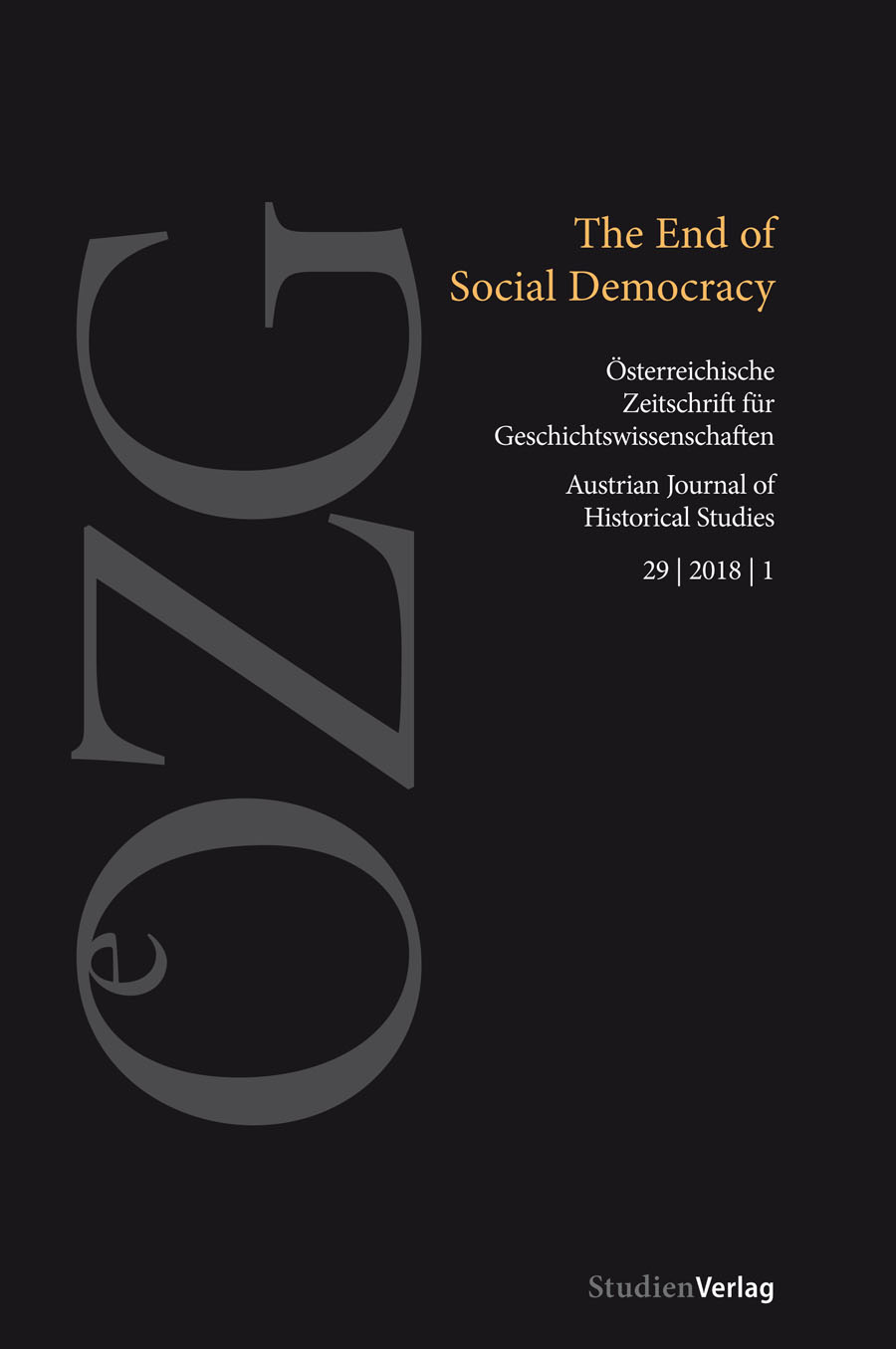The Godesberg Programme and its Aftermath
A Socio-histoire of an Ideological Transformation in European Social Democracies
DOI:
https://doi.org/10.25365/oezg-2018-29-1-2Keywords:
Social Democracy, Godesberg Programme, socio-histoire, scientification of politics, history of ideasAbstract
Abstract: The Godesberg programme (1959) is considered a major shift in European social democratic ideology. This article explores its genesis and offers a history of both the written text and its subsequent uses. It does so by shedding light on the organizational constraints and the personal strategies of the players involved in the production of the text in the Social Democratic Party of Germany. The article considers the partisan milieu and its transformations after 1945 and in the aftermaths of 1968 as an important factor accounting for the making of the political myth of Bad Godesberg. To do so, it explores the historicity of the interpretations of the programme from the 1950s to the present day, and highlights the moments at which the meaning of Godesberg as a major shift in socialist history has become consolidated in Europe, focusing on the French Socialist Party.


